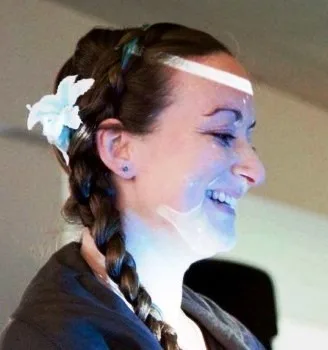I used to teach in a school for children with complex disabilities. Now as a researcher in this area, I find myself both far from classroom life and back in it, conducting field work. I can see how research can end up looking like it has little relevance to practice. In this article, I ask what causes the gap between research and practice, and what we can do to bridge it. First, I will reflect on my time and perspective when I was the one in ‘practice’, as a teacher.
Burnout
I used to be a schoolteacher for students considered within the UK education system to have severe or profound special educational needs and disabilities. As you can imagine, this was a very full-on role. I had children in my class with complex epilepsy who could die if we did not swiftly administer the correct medications. Protocols such as waiting five minutes before calling an ambulance whilst watching a child in seizure have a significant toll on your mental wellbeing. I had children who struggled with eating due to their different experience of the sensory world, I had children who were tube fed directly into their stomachs. My staff and I tried to be all things to all people; we were those children’s playmates, their educators, their medical team, and their emotional support. We tried to extend this to each other and to their families. I worked every hour I had, I worked evenings, I worked weekends, and I worked holidays. I went part-time at work and used the two days off I gained to work more. I never felt like I had done enough. I felt as if I were constantly failing them, that there was always more I wished I had done.
It will not surprise you to learn that I burned out from this role. Not just because of the pressures listed above, but because at the time I had not yet been identified as autistic. I did not have the knowledge of my own neurotype and the power that comes with this to make and advocate for the changes I needed in order to make that workplace survivable.
Shifting Careers: Creating Support
When I left teaching, I still wanted to work for those young people, and for the adults they became, and so I set up The Sensory Projects. The mission of The Sensory Projects is to share the knowledge and creativity you need to use inexpensive items as effective sensory tools for inclusion. My class budget was never huge, and although I would have welcomed the time to read and take in information from research, I just didn’t have it. So, I knew there was a need for cheap resources that were research-informed, and a need for someone to act as the bridge between research and practice. Those young people (and the adults they become) deserve research-informed practice as much as anyone else, but they get it far less. The reasons for that marginalisation are multiple, but two big ones are that researchers do not show an interest in them, and their teachers do not expect there to be relevant research out there or do not have the time to find what little research that there is.
In working as The Sensory Projects I carried on working every hour I had; when you are self-employed there is no sick pay, there is no pension plan, there is no back up. If this is an hour you can work in, you work it. I worked evenings, I worked weekends, I worked the holidays. The vast majority of that time was spent reading research that related to the students I used to teach. I began to think of us back then, when I was in the classroom with them, as being on a beach together. Storms came and lashed against the beach, the sands moved around us, and we did our best. We were so busy on the beach that we did not look up to consider the ‘whats’ and ‘whys’ of what assaulted us there. But as I began reading the research, I began uncovering some of the weather systems that we had lived through.
‘Oh, this was why I – as a teacher – had suddenly initiated a movement session at the start of each day! This is why I had annotated my planning with VAK, standing for visual audio and kinaesthetic (one of the pseudo research trends that floods teaching every so often). And this was why synthetic phonics arrived within my classroom!’
Seen from afar, the storms we had weathered made so much more sense. Had I known at the time what direction the wind would have been coming from I could have set up shelters for my students and myself. Realising what I had not known only added to the feeling of having let those students down. I used this feeling to motivate me: I would give teachers now what I wished I had had then. I would write into the training days that I offer insight from contemporary research. I would give them the power to build those shelters to use the tools research reveals to us. Oftentimes, people have booked onto training with me because they want to learn how to do a particular activity or use a particular product. Although I might mention these during a training day, I always aim to equip people with the underpinning knowledge behind what they are doing, to help them understand the ‘why’, rather than just the ‘what’.
The Sensory Projects began as a Kickstarter, launched through social media. All the way through my journey, my social media has carried insight from the research I read to underpin my work. People watching my journey from the outside were probably not surprised to see me take up a position as a doctoral researcher. To them it would seem like the next logical step. To me it very much did not!
Becoming a Researcher
As a consumer of research, I have always been a research superfan. I remember how powerless and helpless I felt in my classroom at times, how battered and disorientated we were by those weather storms that swept over our little beach and changed things, leaving us to pick up the pieces and try and make sense of everything again. In research I found the power I lacked. I found the knowing. I felt there were answers to the certainty of knots and lashings that could weather any storm. Here was how to build platforms that would support those children, that would enable not disable them. I’ve often compared the transition from research superfan to researcher as being akin to a dedicated groupie suddenly being invited up on stage to sing a number with their favourite band.
The level of your fandom does not in any way indicate the level of your ability to do what those you worship do. It was with enormous trepidation that I stepped up on that stage and took up the role of doctoral researcher (are you keeping up with my mixing of metaphors? I’ll drop the stage one now, let’s stick to the beach!)
Now I am a doctoral researcher. I am studying identity and belonging with people with profound intellectual and multiple disabilities. I still work every hour I have, I work evenings, I work weekends, I work the holidays. In some ways my life never changes! This year I began my field work in a school for children with severe or profound special educational needs and disabilities. I am back on the little beach I used to occupy with the students I taught nearly two decades ago. I am a firsthand witness to the storms lashing that beach now. I get to watch as people rush about battening down the hatches and running for cover, propping each other up, straining against the winds of change as me and my staff used to do.
Applying my Research
The further into research I have gone the further from the beach I have felt. As a teacher my concern was how to fulfil the requirements of the curriculum for the students in my care. In working at , I have learned through my research how that curriculum came about. I was able to see the decisions made in its construction, I could pick out those I agreed with and argue cogently against those I did not agree with. Had I been a teacher with that knowledge I could have defended my students from aspects of the curriculum that did them harm, instead of merely trying to find ways to do that harm more gently. Now as a researcher I am taught to question foundational assumptions, to challenge dualisms, and to decolonise practice.
Not only is the curriculum based on these things, but so are the decision-making processes that go on around it. So is our understanding of who the people on the beach are. As I go deeper into my studies, and there I am, with those children, floating in space.
Future Directions: Social Media
What should we do? Why should we do it? How do we do it? What assumptions are our decisions resting on? What are our unconscious biases? What do our practices say about us? What are we doing? Why are we doing it? Should we be doing this at all?
I stand now in the classroom again, back on the beach, and wonder how I can ever reach them again. You hear about academics being accused of being out of touch. Of producing research that has no relevance to practice. I can see how it ends up looking like that. When you are the teacher on the beach asking, “How do I keep this shelter I’ve built for my students in place?”, you cannot relate to the academic who answers, “Are you sure you are on a beach?”
How do we even begin to bridge that gap?
I can offer my own response to that question, if we ask, how do I begin to bridge that gap? I personally do it through social media, through sharing my research journey, and through writing articles like this one. Mostly, I do this through using Twitter, Facebook, LinkedIn, and Instagram. When I was a teacher, I did not have the time or the capacity to go and read research, but I did scroll through social media. For me, bringing research to social media provides a connection point.
Using social media is a great starting point for bridging the gap — a hopeful voyage towards connecting my research with the field. As I try to reach back to the beach, the offering of my studies feels like a very thin rescue rope, but I hope it is enough to let them know that there is something out there, beyond the beach, and someone out there, who cares deeply, all the hours, all the evenings, all the weekends, and all the holidays, always.




